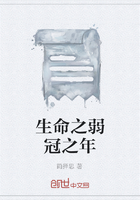Wedgwood was for some time much troubled by his furnaces, though nothing like to the same extent that Palissy was; and he overcame his difficulties in the same way - by repeated experiments and unfaltering perseverance. His first attempts at ****** porcelain for table use was a succession of disastrous failures, - the labours of months being often destroyed in a day. It was only after a long series of trials, in the course of which he lost time, money, and labour, that he arrived at the proper sort of glaze to be used; but he would not be denied, and at last he conquered success through patience. The improvement of pottery became his passion, and was never lost sight of for a moment. Even when he had mastered his difficulties, and become a prosperous man -manufacturing white stone ware and cream-coloured ware in large quantities for home and foreign use - he went forward perfecting his manufactures, until, his example extending in all directions, the action of the entire district was stimulated, and a great branch of British industry was eventually established on firm foundations. He aimed throughout at the highest excellence, declaring his determination "to give over manufacturing any article, whatsoever it might be, rather than to degrade it."Wedgwood was cordially helped by many persons of rank and influence; for, working in the truest spirit, he readily commanded the help and encouragement of other true workers. He made for Queen Charlotte the first royal table-service of English manufacture, of the kind afterwards called "Queen's-ware," and was appointed Royal Potter; a title which he prized more than if he had been made a baron. Valuable sets of porcelain were entrusted to him for imitation, in which he succeeded to admiration. Sir William Hamilton lent him specimens of ancient art from Herculaneum, of which he produced accurate and beautiful copies.
The Duchess of Portland outbid him for the Barberini Vase when that article was offered for sale. He bid as high as seventeen hundred guineas for it: her grace secured it for eighteen hundred; but when she learnt Wedgwood's object she at once generously lent him the vase to copy. He produced fifty copies at a cost of about 2500L., and his expenses were not covered by their sale; but he gained his object, which was to show that whatever had been done, that English skill and energy could and would accomplish.
Wedgwood called to his aid the crucible of the chemist, the knowledge of the antiquary, and the skill of the artist. He found out Flaxman when a youth, and while he liberally nurtured his genius drew from him a large number of beautiful designs for his pottery and porcelain; converting them by his manufacture into objects of taste and excellence, and thus ****** them instrumental in the diffusion of classical art amongst the people. By careful experiment and study he was even enabled to rediscover the art of painting on porcelain or earthenware vases and similar articles -an art practised by the ancient Etruscans, but which had been lost since the time of Pliny. He distinguished himself by his own contributions to science, and his name is still identified with the Pyrometer which he invented. He was an indefatigable supporter of all measures of public utility; and the construction of the Trent and Mersey Canal, which completed the navigable communication between the eastern and western sides of the island, was mainly due to his public-spirited exertions, allied to the engineering skill of Brindley. The road accommodation of the district being of an execrable character, he planned and executed a turnpike-road through the Potteries, ten miles in length. The reputation he achieved was such that his works at Burslem, and subsequently those at Etruria, which he founded and built, became a point of attraction to distinguished visitors from all parts of Europe.
The result of Wedgwood's labours was, that the manufacture of pottery, which he found in the very lowest condition, became one of the staples of England; and instead of importing what we needed for home use from abroad, we became large exporters to other countries, supplying them with earthenware even in the face of enormous prohibitory duties on articles of British produce. Wedgwood gave evidence as to his manufactures before Parliament in 1785, only some thirty years after he had begun his operations; from which it appeared, that instead of providing only casual employment to a small number of inefficient and badly remunerated workmen, about 20,000 persons then derived their bread directly from the manufacture of earthenware, without taking into account the increased numbers to which it gave employment in coal-mines, and in the carrying trade by land and sea, and the stimulus which it gave to employment in many ways in various parts of the country. Yet, important as had been the advances made in his time, Mr. Wedgwood was of opinion that the manufacture was but in its infancy, and that the improvements which he had effected were of but small amount compared with those to which the art was capable of attaining, through the continued industry and growing intelligence of the manufacturers, and the natural facilities and political advantages enjoyed by Great Britain; an opinion which has been fully borne out by the progress which has since been effected in this important branch of industry. In 1852 not fewer than 84,000,000 pieces of pottery were exported from England to other countries, besides what were made for home use. But it is not merely the quantity and value of the produce that is entitled to consideration, but the improvement of the condition of the population by whom this great branch of industry is conducted.
When Wedgwood began his labours, the Staffordshire district was only in a half-civilized state. The people were poor, uncultivated, and few in number. When Wedgwood's manufacture was firmly established, there was found ample employment at good wages for three times the number of population; while their moral advancement had kept pace with their material improvement.
Men such as these are fairly entitled to take rank as the Industrial Heroes of the civilized world. Their patient self-reliance amidst trials and difficulties, their courage and perseverance in the pursuit of worthy objects, are not less heroic of their kind than the bravery and devotion of the soldier and the sailor, whose duty and pride it is heroically to defend what these valiant leaders of industry have so heroically achieved.















